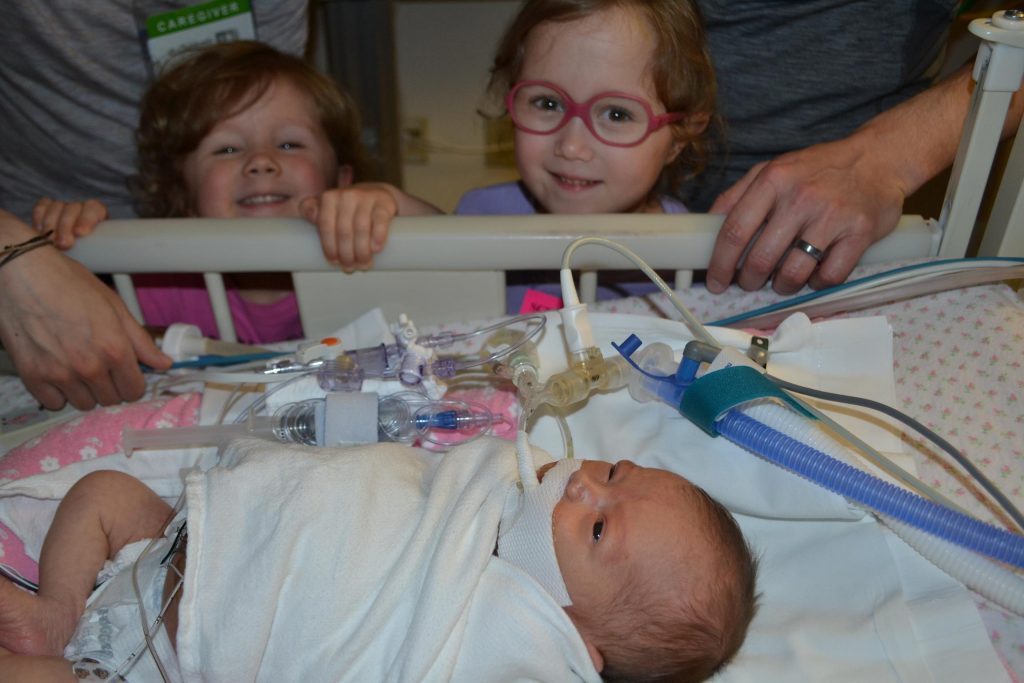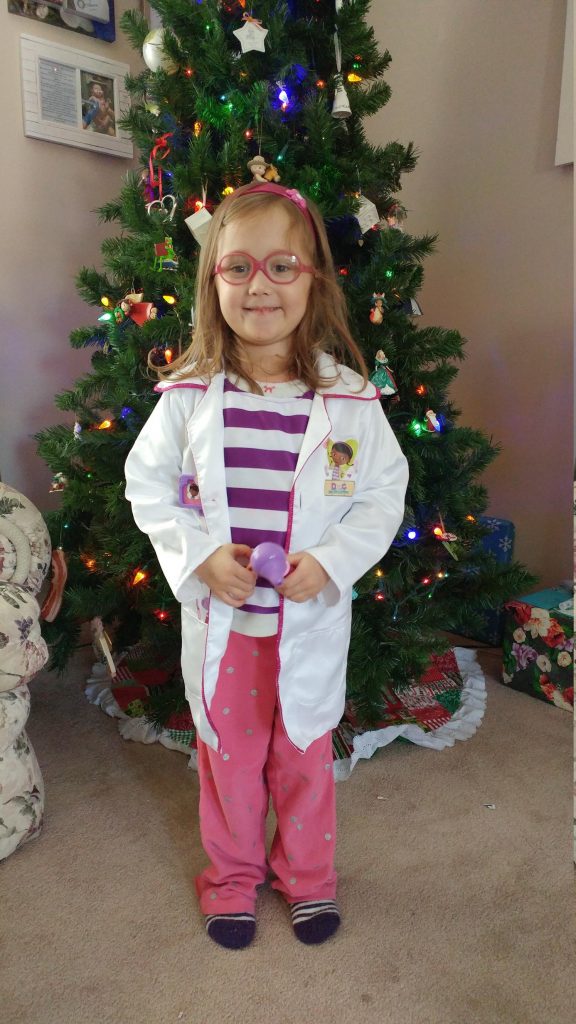A lot of what I’ve shared here as a Transplant Mom so far probably seems like complaints. Some days are so frustrating and feel so unfair that I just want to scream at the top of my lungs. There are times when I still ask why our family got sacked with a complicated disease that necessitated a transplant for E. (Thankfully, these times are now few and far between, but they still occur once in a while.) There are definitely days when I see or hear parents of perfectly healthy kids crying out with woe, asking for prayers as their toddler battles a normal ear infection or a cold, and I want to shake them. In my head I say, “You don’t know how good you have it! I would give anything for E to be a perfectly healthy kid. I would trade all the memories I have of holding her down during a picc line insertion while she screamed, watching her have seizures, or doing dialysis for your kid’s ear infection.” Instead, I ignore the parent or offer sympathy and say that it could always be worse. It may seem rough now, but their kid will get better soon.
One of the interesting things about parenting a chronically ill kid is the perspective that accompanies it. That’s what I really want to talk about here. Perspective is everything. Parents like us soon come to realize that we can’t complain about every little setback because there are scenarios out there that can be much worse for our kids. We learn that we can’t measure our kids’ success by healthy kids’ achievements, and we can’t always measure growth by prescribed milestones at the pediatrician’s office. A very different definition of the word “normal” applies to each family of a medically fragile kid too. I used to try to imagine what our lives would be like if E had been born healthy, but now I realize that’s a fruitless exercise. Meds, doctor’s appointments, labs, medical jargon and the like are part of our lives now and always will be. It’s weird how quickly someone can settle into a life like this, but we do and we go with it. Many times, the concerns parents of healthy children have about their children baffle me because I’m so used to dealing with potentially life-threatening situations. That’s my life, that’s my normal.
So, things could always be worse. That’s a key attitude of perspective I’ve gained since becoming a mom. After I freak out a little over a new hiccup or vent my frustration to my husband (or my mother-in-law) about some insurance problems, I remind myself that we actually have it pretty good. It is very frustrating to deal with everything we go through or have gone through, but we are also very blessed. E spent just one day shy of a year on peritoneal dialysis – not several years. We didn’t have to wait months and months on the transplant list for an organ to become available for E. She was able to get a transplant from a living, related donor and her surgery went exactly as planned. Except for gut bugs and anemia, she’s stayed pretty healthy since transplant, and the secondary conditions caused by her kidney disease have drastically improved (e.g, heart disease). After speech therapy and a lot of help from dietitians, E now speaks and eats as well as healthy kids. If you didn’t know she had a feeding tube, you would never be able to tell by looking at her. And only trained eyes would notice the little tell-tale scar on E’s neck that indicates something else is going on with her (her upper port-a-cath scar). E has had a rough go of it, but things could have gone so much worse for her.
Watching E run around outside over the past few weeks was the catalyst for my recent reflections on perspective. This time of year five years ago, we brought E home from the NICU and were doing peritoneal dialysis at home. That time in our lives was so indescribably hard that my husband and I both recently admitted we block out the memories of it. Transplant and a “normal” life seemed unreachable then. Now, that journey to transplant is just part of E’s and our family’s story. For whatever reason, we had to go through all of that to get here. We thank God for modern medicine, a successful transplant, and allowing E the ability to eat, speak, and walk on her own. E may be immunocompromised, but she is healthy in all these other ways. We see the parents of other kiddos with conditions that prevent them from communicating, eating on their own, or moving independently, and we marvel at their strength. Those parents do exponentially more than we do and selflessly deal with their own versions of normal. They are the parents I admire most.
A last note about perspective: it took me a while to get to an attitude of gratitude and to remember that things could always be worse. I had to process and work through a lot of anger, frustration, and sadness, even amidst my joy at being E’s mom. Sometimes when you’re lost in the trees, it truly is hard to see the forest and you take things for granted. I say this because I’ve relied on perspective so much more in the last year since we lost our third daughter, V, in May 2020 to the same kidney disease E was born with, ARPKD. With E, I never really entertained the thought we might lose her because that just wasn’t a possibility in my mind. E had a lot of odds stacked against her, but she is a fighter and she always pulls through. Even so, all I could think about leading up to V’s birth were the complications and long hospital stays E endured and I was angry. I didn’t want our family to go through all of that pain again. After V was born and we saw how much more severe her disease was than E’s, it became crystal clear just how many things had to go right and did for E to make it. I realized how lucky we would have been if V’s disease had presented in ways similar to E’s. Isn’t that weird? To feel lucky for the disease complications that previously caused our family so much hardship? That’s perspective in action. I would gladly have been a Transplant Mom to two transplant kiddos. But it wasn’t meant to be. V is enjoying her heavenly home now. We miss her terribly, but we are grateful for the time we had with her. So, what I’m trying to say with this post is remember to have perspective. Be sad, angry, or frustrated as you need for a time. Then remember things could always be worse. Find the good amidst the bad. Our lives are super frustrating at times; I complain about things and need to vent. But every day we choose joy at being the parents of our three wonderful girls. And every night when I tuck E in, I choose joy at being a Transplant Mom.

